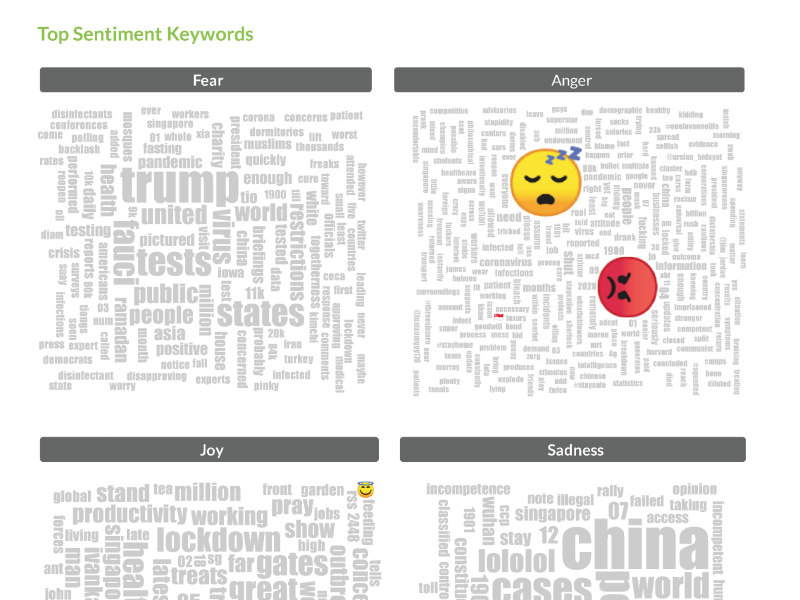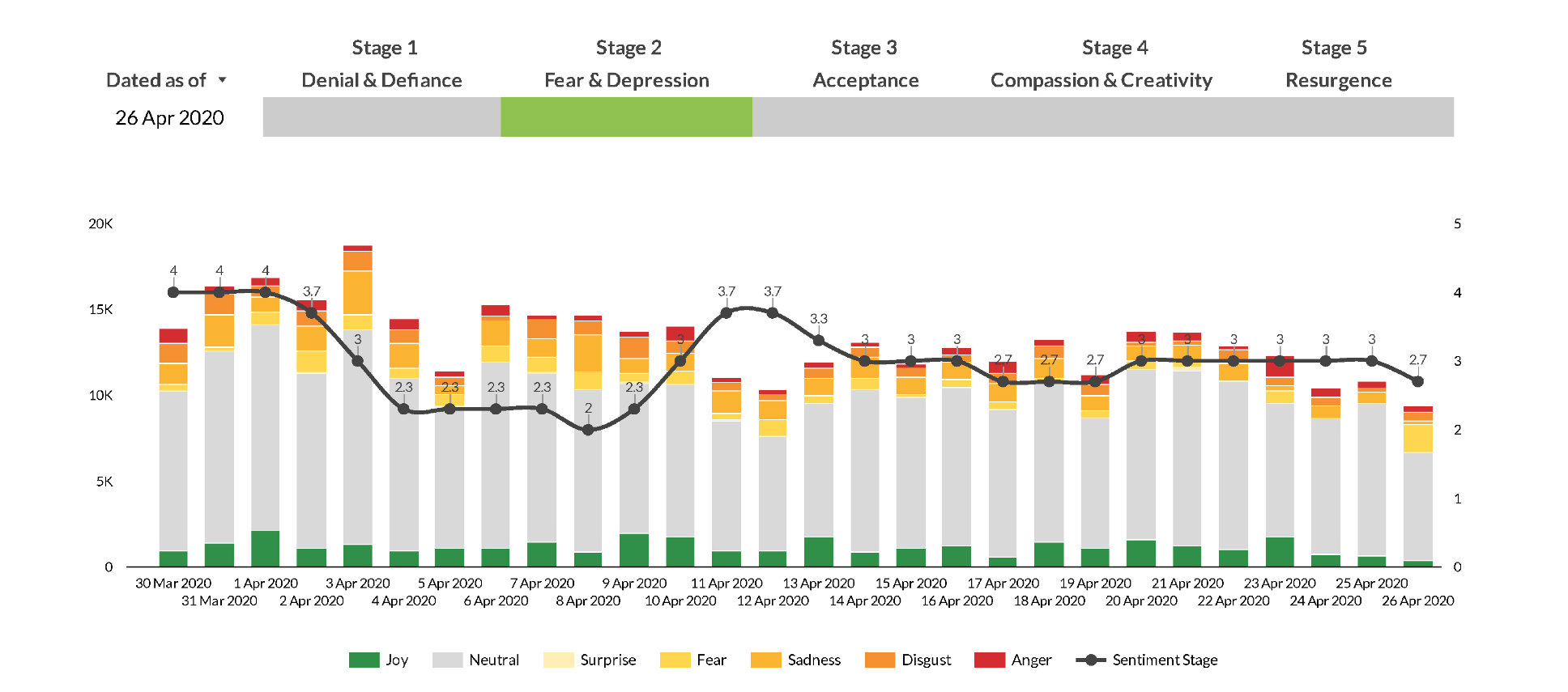Arun Sudhaman 06 May 2020 // 6:16AM GMT

SINGAPORE — A new study advises brands to map their messaging against the 'five stages of grief' as they attempt to understand the public mindset amid the Covid-19 pandemic.
The report from Zeno tracks online sentiment across several Southeast Asian and South Asian countries, measuring three parameters — emotions (processed via AI), volume of conversation and topic analysis — and mapping these against the Kubler-Ross model.
The analysis finds that Singapore slipped into the 'fear and depression' stage towards the end of April as Covid-19 cases mounted and restrictions increased.

For the most part during April, Singaporean attitudes toggled between 'acceptance' and 'fear and depression'. After analysing more than 80,000 online conversations, the report also identified specific emotional sentiment drivers in Singapore — 'anger' over irresponsible behaviour and the government response; 'fear' regarding job security and employability; 'sadness' because of the impact on the Ramadan season; and, 'joy' around stories of how netizens are finding entertainment.
In Malaysia, meanwhile, sentiment has improved and now sits in 'acceptance' after slipping into 'fear and depression' earlier in April. Indonesians still remain in the latter stage, as does India — where sentiment is the least positive of all countries tracked. In Australia, though, the climate has improved towards 'acceptance' as the country emerges into the recovery stage.
Against that backdrop, brands need to demonstrate empathy rather than engaging in frivolous, overly positive messaging, said Zeno growth and innovation MD David Lian. As an example, he pointed to a Malaysian fastfood client that "responded to specific prevalent concerns around health and safety by launching new contactless delivery and takeaway options, and explicitly communicated the increased hygiene and sanitization steps it was taking to assure Malaysians they could still get access to safe, ready-to-eat food."
"It’s all about understanding the mindset of an audience at a particular point in time, in order to communicate in a way that’s not only consistent with a brand’s purpose, but also the current context in terms of public sentiment," said Lian. "As sentiment heads into the ‘acceptance’ phase, communications should shift towards addressing and adapting to lock-down and social distancing measures."
"As the pandemic eases, we will move into a ‘resurgence’ stage," added Lian. "Here, we see a need for brands to actively communicate authentic thanks to its staff, customers and other stakeholders. But there will also be opportunities for brands to take a distinctive point of view about what the new normal looks like for its audience, and thereby position itself for leadership as the economic recovery takes hold."
Lian also noted that many brands have misjudged their messaging by failing to understand the public mood. "We’ve seen a number of other brands respond effectively – as well as several who’ve misread the mood or tried initiatives that betray a lack of understanding of their own market position or brand purpose," he said.


































.jpg)

















